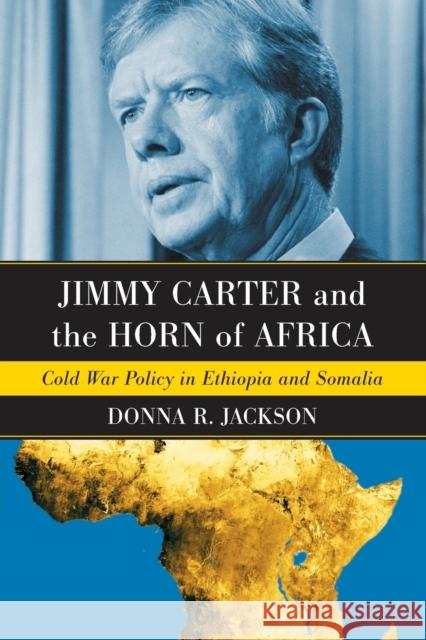Jimmy Carter and the Horn of Africa: Cold War Policy in Ethiopia and Somalia » książka
Jimmy Carter and the Horn of Africa: Cold War Policy in Ethiopia and Somalia
ISBN-13: 9780786429875 / Angielski / Miękka / 2007 / 240 str.
Jimmy Carter and the Horn of Africa: Cold War Policy in Ethiopia and Somalia
ISBN-13: 9780786429875 / Angielski / Miękka / 2007 / 240 str.
(netto: 159,46 VAT: 5%)
Najniższa cena z 30 dni: 166,56
ok. 16-18 dni roboczych
Bez gwarancji dostawy przed świętami
Darmowa dostawa!
When Jimmy Carter ascended to the U.S. presidency in 1977, he stepped into an office still struggling with the aftermath of the Vietnam War and the Watergate scandal. As president, he had to administer his foreign policy and fight the Cold War within the limits imposed by both. With the option of traditional military recourse essentially closed to Carter, he redirected American foreign policy to challenge the Soviet Union on a moral level, emphasizing regionalism and human rights. A careful examination of his policy shows that his approach was similar in other parts of the world. Particularly representative were his actions in Ethiopia and Somalia. This analysis of President Carter's foreign policy in the Horn of Africa demonstrates Carter's consistent approach to foreign affairs throughout his administration. It follows the president's deliberate designing of his overall policy and his attempt to regain for the presidency the trust and confidence of the American people. It discusses the ways in which this policy dealt with such issues as human rights abuses, Cold War concerns including a strong Communist bloc presence, and the violation of international law. Finally, the book examines the changes that occurred at the end of Carter's administration and the corresponding changes in policy--but not in motivation.











